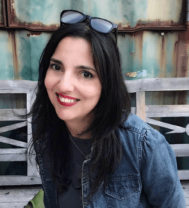In a recent Ascensia Blog post, Corinna Cornejo wrote about the power imbalance that exists between people with diabetes and healthcare professionals in clinical settings. Today, I’m writing about how that power imbalance moves from outside the examination room and into spaces that were set up specifically to be safe for people with diabetes.
When I was first diagnosed with type 1 diabetes in 1998, there was an Australian online forum called Reality Check. It was unapologetically clear about its mission: to support young people living with type 1 diabetes. The site had been set up by young people with diabetes who were looking for a space where people like them could speak about the issues, concerns, frustrations, joys and day-to-day trials of living with type 1 diabetes, at a time in their lives when there was so much else going on.
I say it was unapologetic, because there was never any doubt who the site was for and what the focus would be. Everyone was welcome. However, the raison d’etre was to be a safe community space for young people with type 1 diabetes, rather than fit anyone else’s agenda. Healthcare professionals were welcome, provided they were respectful. Parents of kids with type 1 could participate provided they didn’t make it about themselves or criticise their kids with diabetes. Everyone played along nicely, and if anyone didn’t follow the community rules, they were politely, but oh-so-very firmly, told to pull their head in.
The voice that was heard loudest and clearest was the voice of young adults with diabetes. There was never any doubt about that!
The Global #DOC
Today, there are countless places online that make up the diabetes online community (DOC), with a number of different communities. Online communities use different hashtags, often to identify where people are based geographically. All of those communities: #DSMA, #OzDOC, #GBDOC, #DEDOC, #FRDOC, #IREDOC, #NIDOC, #ITDOC, #SADOC, were set up by people with diabetes as a siren call to find their people! The uniting hashtag is #DOC.
Whether it is an open platform for anyone to view and participate, or a closed group, it’s not hard to find places where PWDs congregate. It’s not just Facebook and Twitter. Instagram is the platform of choice for some, and many use YouTube for longer form videos to share information. Reddit is an endless source of diabetes discussions. Tik Tok emerged last year as a place for snappy, quick videos that actually proved to be a great way to find others in the community. Some places are better suited to open discussion and debate and to pose questions to see how others deal with a particular issue – more like the old school forum that was Reality Check – while others are more of a platform for people to put out information and share their own agenda. Whatever floats the boat of PWDs is what works!
There is, however, one commonality between all platforms and that is that the DOC was always intended as a place for people with diabetes to congregate, share and feel safe. A lot about living with diabetes is tough, but for so many, having a place that is full of people just like us – who just plain ‘get it’ – has meant that we feel connected to a global community of our peers which means we feel less alone.
The DOC also freed PWDs from a lot of the constrains that we experience when we are in other settings. Corinna’s eloquent post (available here) reflects frequent DOC conversations, where people are free – and safe and comfortable – to share about the relationship between the person with diabetes and their healthcare professional and their concerns about the power imbalance they experience in the clinic or hospital setting.
More Than People With Diabetes
So how does the community work when it extends beyond people living with diabetes and our loved ones? How does it work when others such as healthcare professionals, industry, diabetes organisations and other stakeholders start to venture into the safe space that was set up specifically for us?
Well, in a lot of cases, it works just fine! When there is a clear understanding of the ‘why’ of the community and the reasons behind it, it can actually be a better place when there is engagement from everyone involved in diabetes – both those living with it as well as those ‘working’ in it, as long as people with diabetes remain central and continue to feel safe. Healthcare professionals frequently say that being able to ‘listen in’ to PWDs in our own space has been a great way for them to get a better understanding of real life with diabetes. And I agree that this can be really insightful and enable better care for PWDs.
When it doesn’t work so well is when the power imbalance in clinic settings that Corinna wrote about leaves that environment and becomes apparent in the diabetes online community – our space.
In fact, anyone from outside the DOC who comes into our communities can be disruptive if they impose their point of view or disregard the rules of engagement. However, when it's a HCP who is the disrupter, the impact is often much stronger than when it's someone from industry.
One of topics that is regularly raised and always generates a lot of chatter is dealings with healthcare professionals. A lot of the time they are fabulous encounters that people with diabetes want to share. I have written so frequently about my love and admiration for my own endo – and how I named my daughter for her – that people have started to be quite concerned about how I am going to cope when she retires. (For the record, we have an understanding that she cannot retire until diabetes is cured, or I die. That’s how it works, and no further correspondence will be entered into.)
But there are also a lot of not-so-great experiences, and being able to debrief, seek advice, workshop solutions and simply share these stories is one of the reasons PWDs seek each other out. The DOC was established as a place to be able to have those conversations and not be judged, or be afraid to be honest and open. Unfortunately, the healthcare systems we are all forced to frequent are not always the safe places of care and equality that most ‘patient-centred’ places like to think they are. There is a power imbalance in almost all HCP/patient encounters: even the term ‘patient’ implies a need to be helped, told what to do and ‘cared’ for, when the truth is that as people with diabetes, we are managing the condition on our own pretty much all the time!
Our reliance on HCPs means that there is power in play. Even the most egalitarian HCP is tasked with providing us with our medication, access to technology, and pathology requests. We are dependent on them to ensure that we have the treatment tools to continue to manage our diabetes. They are the gatekeepers of data from our latest pathology check-ups and we cannot receive them until they say so. They determine whether or not we can try that new insulin or SGLT2 that has just come on the market. Even if they simply sign the documentation at our request, we still need their signature. Even if there are good reasons for this, the power imbalance still exists.
But the DOC was meant to be a place that the power of HCPs did not exist over us. They could not control the discussions we had, the complaints we shared or the words and tone we used when talking about all issues relating to diabetes.
And so, it is with so much disappointment that there are times that we see that power imbalance creeping into the safe place we formed, with the level playing field we built.
Who Has The Loudest Voice?
This happens when our conversations are moderated, or we are told that we shouldn’t be speaking about certain topics or situations. It happens when someone shares a less than glowing encounter with a HCP, and they are firmly told that they are sharing only one side and therefore not being fair to the HCP in question (even though names are rarely, if ever, shared). It happens when we are told the words we are using – the language that we feel best expresses our experience – are aggressive, offensive, inappropriate or disrespectful.
But it is more than just tone policing. If the loudest voice that is heard in any of these communities is not the voice of the PWD, then the dominance by HCPs that is evident in clinical settings is reflected in the DOC. And that matters. It matters a lot. And it means the spotlight is moved away from the those it is all meant to help.
So often, we don’t get the opportunity to have a place in discussions about diabetes; in fact, we are actively excluded from many. Even when we have a seat at the table, such as during our own medical consultations, we don’t always get much of a chance to be heard. There are times that we get spoken over or ignored. One of the reasons the DOC thrived when it started was because it wasn’t a space where we needed to fight to be heard or to be understood because it is our space.
But when it is not PWDs who are dominating the community, it means that it is no longer our safe space. And that means some people may feel reluctant to share for fear that they will be judged or called out by HCPs.
The DOC has huge benefits for so many PWDs. All the positives I hear and have personally experienced reflect the very reason that the community was formed in the first place. When those reasons become murky, when PWDs stop feeling safe, when PWDs are no longer the loudest voice, then, unfortunately, the community is no longer the way it was originally intended. And that is a great, great shame.



